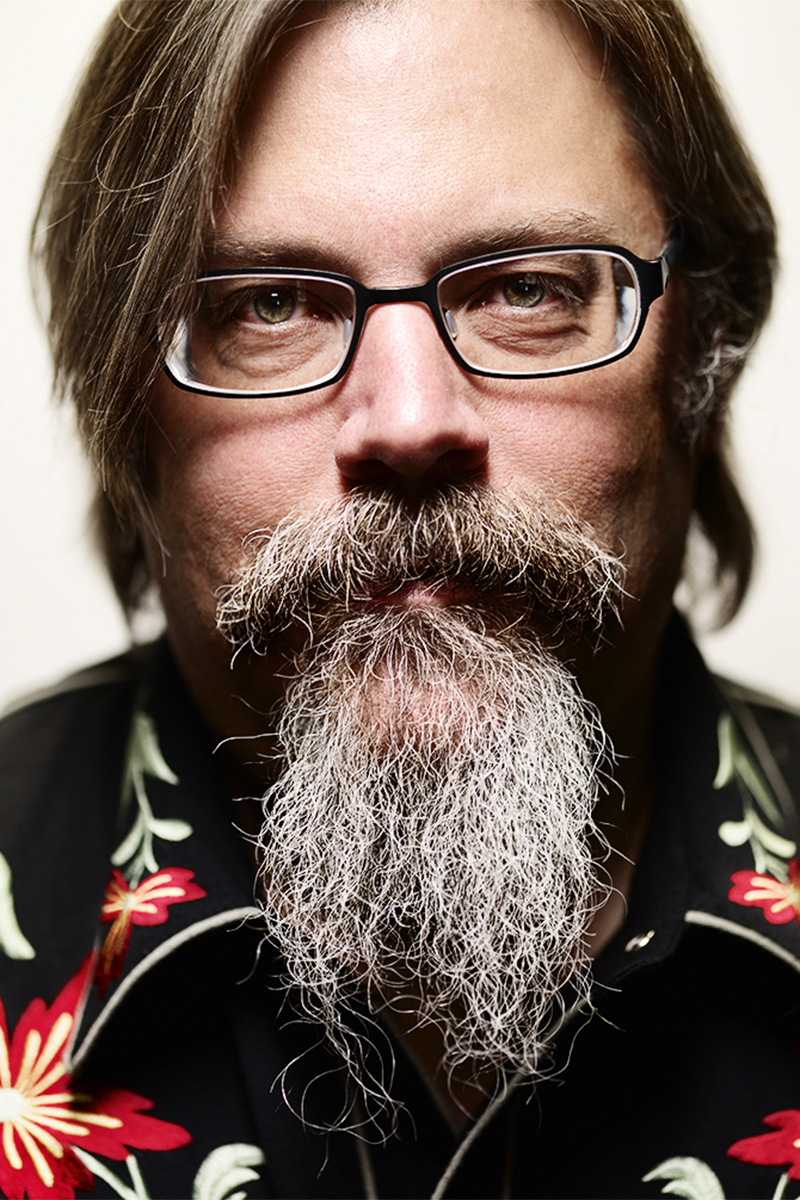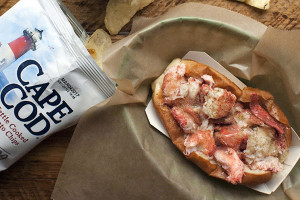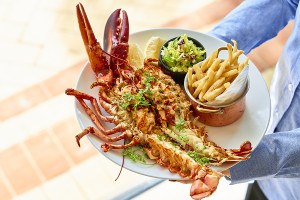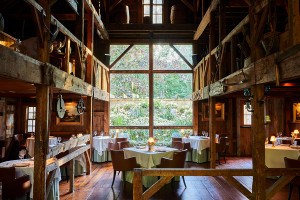David Wondrich on Dive Bars, Booze, and ‘Opinionated’ Bostonians

Longtime Esquire drinks correspondent, David Wondrich. Photo provided
What Jancis Robinson is to wine and what the late, great Michael Jackson was to beer, David Wondrich is to the world of spirits, cocktails, and drinking culture. Since 1999, the longtime Esquire drinks editor has been dispensing his particular brand of knowledge on topics like Japanese whiskey, Italian amaros, and Pre-Prohibition cocktails—well before those trends became de rigeueur. Described as the “foremost expert on the history of the American cocktail,” Wondrich has now contributed five books on the category, including 2007’s Imbibe, an essential bartender’s guide that was the first cocktail book to ever win a James Beard award.
In addition to writing an updated second edition of Imbibe (due out next spring), Wondrich is currently working on his most daunting undertaking to date: editing The Oxford Companion to Spirits and Cocktails, a detailed, 1,200 entry tome that will cover everything from bourbon and boilermakers to forgotten legends of the field.
On November 24, the cocktail guru will be in Boston where he’ll be discussing the history of punch, signing copies of his book, Punch: The Delights (and Dangers) of the Flowing Bowl, and whipping up Hub Punch, Daniel Webster punch, and any number of stirred cocktails at Empire Restaurant & Lounge.
Before he makes his way into town, we caught up with Wondrich to discuss (among other things) his not-so-sunny thoughts on the craft spirits movement, go-to drinks to make at home, cocktail trends he’s less than enamored with, and the 2014 Best Bars in America list that agitated so many people right here in Boston.
How did you get into writing about spirits and cocktails?
I was a junior English professor who was not enjoying my job too much. I had taken to writing about music for the Village Voice and The New York Times and by happenstance a friend of mine who knew I was into cocktails—I had a few old cocktail books and I made the occasional cocktail—he called me up for a special project for Esquire. That was way more fun than anything else I was doing. Writing about music was fun, but it didn’t pay anything, really. I soon realized I would much rather be doing this than professing. That was 15 years ago now.
Where were you teaching?
I was at St. John’s in New York. I was teaching Shakespeare, which I loved doing. I was also teaching freshman English, which I hated. I was also serving on a bunch of committees and this and that and jumping through all kinds of hoops.
Do you give yourself any credit for helping bring the cocktail movement to where it is today?
I’ve certainly provided a lot of information over the years. I’ve led the horses to water so to speak. But it’s them that are doing the drinking. It’s stuff people were interested in and I responded to that. I’m fortunate to have trained research skills from my PhD years. That helps a lot. It’s certainly not essential, but it does help. My interest in cocktails coincided with other people’s interests, so it was really more about being in the right place at the right time.
Are there any current cocktail trends that you find irritating?
When you reach a certain age a lot of stuff starts getting annoying to you, because it’s not really aimed at you. There are a lot of younger people trying to make their bones doing things you find irritating. But you find that in any field, and you kind of have to discount that. My personal preferences are for less elaborate cocktails. I’m not a huge fan of house-infused this-and-that. I’d rather use fewer ingredients and find the exact right ones to get that effect without having to go the long distance around. But that’s my own personal taste and I don’t hold it against people. That would be foolish. There’s always going to be things I find weird and that don’t line up with my aesthetics, but again, it’s not my position to be yelling, “Hey kids, get off my lawn.”
At home, what’s your go-to drink?
I have so much booze at my house that I usually just invent something. It’s easier than remembering recipes. I know what effect I want, so I just grab some ingredients and make it. It’s usually something stirred with gin or whiskey. Last night I was making Caipirinhas just for the hell of it. It’s getting cold and I wanted to pretend it wasn’t. It’s always something like that. It’s usually a fairly simple drink. I like fortified wines a lot, so I use a lot of port, sherry, and madeira, which I’ll mix with gin and a splash of liqueur. Other than that, it would be an Old Fashioned or daiquiris in the summer. I drink a lot of daiquiris.
What are your thoughts on the craft spirits movement?
I’m pulling for it 100 percent, but most of it is not there yet in terms of quality. They’re competing with people and companies whose institutional memories go back, in some cases, to the 1700s. They’ve learned so much about distilling that the craft people are still trying to learn. The basics of distilling are fairly simple. It’s the little tweaks and the craft people haven’t learned those yet. Either that or they’re rushing because they’re undercapitalized. It’s hard to wait eight years for a truly superior whiskey to age while you’re doing nothing. They’re taking every shortcut in the book and the shortcuts aren’t nearly as effective.
I sympathize, but on the other hand, my job is to recommend good things to people. So, I’m going to wait until I have good things to recommend before I jump in with both feet and start yelling from the rooftops. There’s just so much out there that’s unbalanced; most of the whiskeys don’t have enough age and the gins are overly perfumed. It’s like when someone first gets an electric guitar and they turn it up all the way to 10.
I know you’ve lived in Brooklyn now for a while, but it seems like you travel to Boston quite often.
Not as much as I’d like to. Boston is my natural constituency. You’ve got a lot of overeducated, underemployed people drinking good cocktails. Those people are always fun to talk to.
What bars and bartenders do you seek out while you’re here?
I always try to get to Drink, Trina’s Starlite, and The Hawthorne. One of the best dive bars in this wing of the galaxy is the Drinking Fountain in Jamaica Plain. Also, Doyle’s [Café], just down the street, is a bedrock classic American bar. Back in the day I used to spend a lot of time at Green Street when Misty Kalkofen was there. John Gertsen is a dear friend of mine, and I’m very sorry Boston lost him to San Francisco.
From a historian’s perspective, what would you say is the most important cocktail to have emerged from the region?
Obviously the Ward Eight is the most classic. It was always made large in a beer goblet, maybe with a little ice and soda in it, at least when they first made it at the Locke-Ober, which is sadly lamented. There were other popular drinks that preceded the Ward Eight, but they were too early to have been written down because they were in the 1840s. Most were by Peter Bent Brigham who, when he died in the 1870s, left all his money to found the Brigham and Women’s Hospital. But he was a saloonkeeper who had a whole raft of drinks that I’m still looking for recipes on. But that essentially marked the beginning of Boston’s mixology reputation. Unfortunately, there are penalties to being too early. Someday maybe they’ll turn up, but I haven’t had any luck yet.
One of your choices for the Best Bars in America for Esquire was the downtown location of J.J. Foley’s. That seemed to have upset a lot of people in Boston.
If you’re not from Boston, that’s a really good place to drink. There’s not much else around there that has much authenticity left. Everybody told me that I picked the wrong one. Well yes, from a Boston perspective I probably did. But from a traveler’s perspective, you want places near where you’re doing business. I thought it was a great bar the couple of times I was there. For Esquire’s Best Bars, we look at it from one point of view, while with every local market, it’s a crapshoot as to if you choose the bars that are hip to the local people. It’s based on going into a hell of a lot of bars, in a lot of countries, over the course of a number of years. It’s always a challenge. Sometimes you get it right and you name the right dive bar. Other times you name the one people are less enamored with. It’s particularly a problem with dive bars. What are you going to do? Bostonians are very opinionated, as they should be.
VIP $50 per person (includes an autographed copy of Punch: The Delights (and Dangers) of the Flowing Bowl), no cover for the Holiday Punch Party, Nov. 24, 1 Marina Park Dr., Boston; 617-295-0001, empireboston.com, or eventbrite.com.


